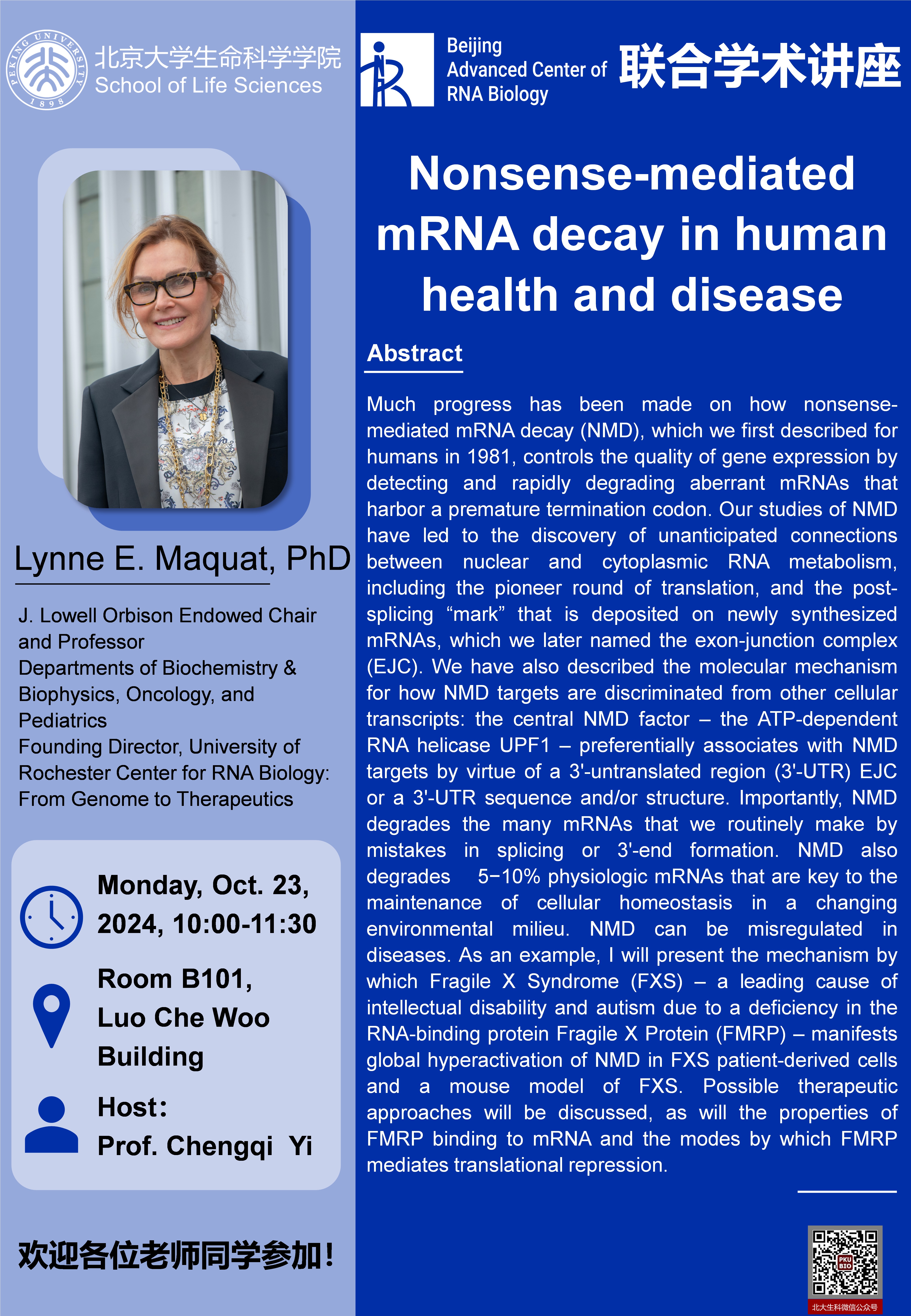Speaker: Lynne E. Maquat, PhD, J. Lowell Orbison Endowed Chair and Professor, Departments of Biochemistry & Biophysics, Oncology, and Pediatrics, Founding Director, University of Rochester Center for RNA Biology: From Genome to Therapeutics
Time: 10:00 – 11:30 a.m., Oct 23, 2024, GMT+8
Venue: Rm.B101, Lui Che Woo Building, PKU
Abstract:
Much progress has been made on how nonsense-mediated mRNA decay (NMD), which we first described for humans in 1981, controls the quality of gene expression by detecting and rapidly degrading aberrant mRNAs that harbor a premature termination codon. Our studies of MD have led to the discovery of unanticipated connections between nuclear and cytoplasmic RNA metabolism including the pioneer round of translation, and the post-splicing "mark" that is deposited on newly synthesized mRNAs, which we later named the exon-junction complex (EJC). We have also described the molecular mechanism for how MD targets are discriminated from other cellular transcripts the central MD factor - the ATP-dependent RNA helicase UPF1 - preferentially associates with NMD targets by virtue of a 3'-untranslated region (3'-UTR) EJC or a 3'UTR sequence and/or structure. Importantly, NMD degrades the many mRNAs that we routinely make by mistakes in splicing or 3'-end formation. NMD also degrades 5-10% physiologic mRNAs that are key to the maintenance of cellular homeostasis in a changing environmental milieu. MD can be misregulated in diseases. As an example, I will present the mechanism by which Fragile X Syndrome (FXS) - a leading cause of intellectual disability and autism due to a deficiency in the RNA-binding protein Fragile X Protein (FMRP) - manifests global hyperactivation of MD in FXS patient-derived cells and a mouse model of FXS. Possible therapeutic approaches will be discussed, as will the properties of FMRP binding to mRNA and the modes by which FMRP mediates translational repression.
Source: School of Life Sciences, PKU
